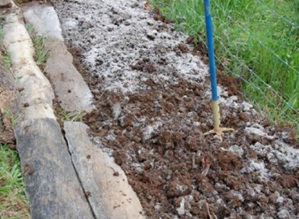The use of ash from Ekibastuz coal as fertilizers

Project Manager: Beletskaya N.P., candidate of geographical Sciences.
The aim of the project: development and implementation of production technology of fertilizers on the basis of ash of Ekibastuz coal (of solopaca) for cereals, potatoes, vegetables with field testing.
Project objective:
- behavior of calculations of proportions of components of a new fertilizer;
- preparation of the required amount of new fertilizer;
- sowing of grain crops on the specified plots and areas;
- observation of crops during the growing season:harvesting, its implementation;
- summing up the results, making calculations in accordance with the contractual terms.
Project description: a significant consequence of the use of a new fertilizer is the strengthening of plant stems. An indicator of the effectiveness of the new fertilizer is the ability to introduce new fertilizer along with the seed, which reduces the cost of production and mechanical stresses that cause soil compaction. This method of making ash from Ekibastuz coal was proposed in 2010 by the candidate of agricultural sciences. Gaas O.S. when laying the first experiment on the plots of SKKSHOS LLP.
Agreements on joint scientific and practical activities to increase the yield of grain crops were signed with Bolshemalyshenskoe LLP, Berezka-Agro LLP, and Astrakhan LLP.
Currently, tests are carried out on fertilizers based on ash on the basis of a peasant farm in the Shal akyn SKO region and the Regional Experimental Agricultural Station.
Expected results: Development, testing and implementation of a new fertilizer based on Ekibastuz coal ash for use in sowing grain and vegetable crops.
Application of project results:
- the emergence of a new fertilizer with the properties of organic fertilizer for crops;
- increase the yield of grain and vegetable crops in the region;
- reducing the cost of crop production;
- creating a healthy competitive environment among wholesale and retail distributors of crop products.

